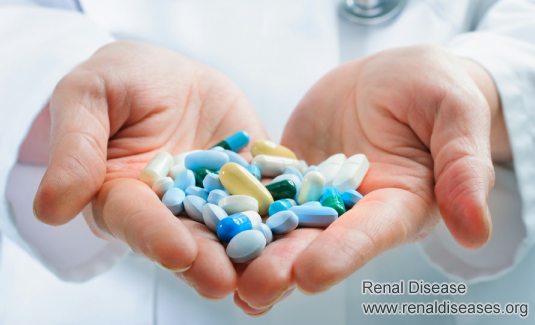Whatsapp: +8615512139310
- Email us:
 Have you taken the following eight drugs for kidney disease? If yes, you should pay attention, because they may cause cardiac arrest. Now go on reading to learn more information.
Have you taken the following eight drugs for kidney disease? If yes, you should pay attention, because they may cause cardiac arrest. Now go on reading to learn more information.
Maintaining the balance of potassium, phosphorus, calcium, phosphorus and sodium in the blood is one of the six major functions of the kidney. Most of these electrolyte ions are regulated by the kidney. If their concentration is high, the kidney will drain them out. If it is low, the kidney will not drain.
Why does the kidney maintain the balance of these electrolytes? Because without them, the human body can not function normally, but when their concentration is too high, they will damage the human body. Among electrolyte disorders, hyperkalemia is the most terrible in nephrology because potassium is closely related to heart function. Hyperkalemia is a common critical disease in nephrology, which can lead to limb fatigue, numbness, slow heart rate and even cardiac arrest.
If the renal failure is serious and the glomerular filtration rate is below 10, hyperkalemia is a criterion for dialysis.
Patients with renal failure have a greater risk of hyperkalemia, so drugs that increase blood potassium should be used cautiously, and blood potassium should be monitored after use.
1. RAAS inhibitors, such as ACEI/ARB drugs commonly used in patients with kidney disease;
2. Salt corticosteroid receptor antagonists: epristone, spironolactone;
3. Non-steroidal anti-inflammatory drugs: aspirin, paracetamol, ibuprofen, naproxen, etc.
4. Heparin and ketoconazole;
5. Potassium-preserving diuretics, such as spironolactone, aminophenol, amiloride, etc.
6. Immunosuppressive agents: cyclosporine or tacrolimus;
7. Beta blockers: atenolol, metoprolol, sotalol hydrochloride, propranolol hydrochloride, carvedilol and so on.
8. Flowers and leaves of some Chinese herbal medicine.
These drugs are often used in the treatment of kidney diseases, and ACEI, ARBs, tacrolimus, some traditional Chinese medicine and so on are still pillars of medicine for kidney disease. They are often needed after getting kidney disease, but hyperkalemia should be prevented. Especially in patients with renal failure, whether taking traditional Chinese medicine or western medicine, blood potassium should be monitored. For more information on CKD treatment, please leave a message below or contact online doctor.